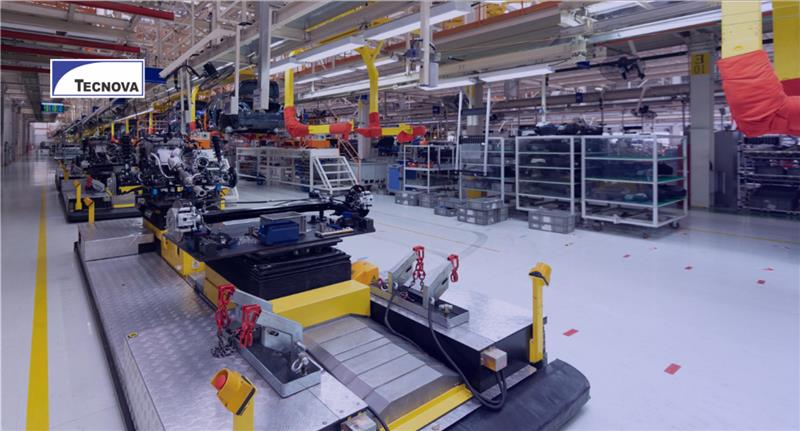Unlocking India’s USD 1 Trillion Manufacturing Potential
- Infrastructure Development: Invest in industrial corridors, ports, and highways.
- Technology & Innovation: Embrace Industry 4.0, AI, automation, and R&D for high-value production.
- Skilled Workforce: Upskill talent for modern manufacturing demands.
- Sustainability & Exports: Focus on eco-friendly products and global market access.
- Policy & Incentives: Leverage Make in India, PLI, and Atmanirbhar Bharat programs.
- Key Sectors: Electronics, automotive, chemicals, pharmaceuticals, textiles.
Vision: Transform India into a global manufacturing and innovation hub.
How Tecnova driving India’s USD 1 Trillion Manufacturing Revolution
Tecnova helps global firms enter and grow in India by providing end-to-end manufacturing consulting. Services include market entry strategy, investment planning, supply chain optimization, infrastructure advisory, and leveraging government incentives like Make in India and PLI. We enable innovation-driven growth across electronics, automotive, pharmaceuticals, and textiles.
Is your company ready to be a part of a manufacturing boom of USD 1 trillion by 2030?
India is slowly becoming a global manufacturing hub. The surge is fueled by Industry 4.0 adoption and transforming government initiatives.
By utilising expert manufacturing consulting services from reliable firms, like Tecnova, foreign companies can confidently join in the manufacturing momentum and scale their business in this high-growth market.
In this blog, we will walk through the market size of the manufacturing sector along with key areas for foreign investment, strategic entry points, and other relevant details.
The Rise of India’s Manufacturing Sector
India’s manufacturing sector is rising due to high domestic demand, especially from the middle class of India. The middle-class population is expected to be the second-largest consuming group. They will make up 17% of global consumption by 2030.
The sector is projected to contribute 25% to the national GDP by 2047, with 15% industrial growth. Initiatives like Make in India, Production Linked Incentive (PLI) schemes, Atmanirbhar Bharat, and Foreign Direct Investment have played a key role in taking the industry to new heights.
5 High-potential Sectors for Foreign Investment
1. Electronics and semiconductors
By leveraging local manufacturing units, foreign electronics giants are establishing their hubs in India. With the increasing demand for smartphones and appliances, this sector opens a door of possibilities for large-scale investment.
2. Automotive and electric vehicles (EVs)
Do you know that 7.1% of global GDP comes from the Indian automotive market? Ranked as the fourth-largest automotive market, Indian automobile giants are expanding their manufacturing footprints.
3. Textiles and apparel
India has consistently been one of the world's leading exporters of textiles. Global apparel brands are turning to India due to its skilled workforce and strong supply chains in cotton, synthetic fibres, and ready-made garments.
4. Chemicals and speciality materials
The Indian chemical industry is valued at USD 220 billion. It is expected to grow to USD 300 billion by 2030 and reach USD 1 trillion by 2040. Speciality chemicals, agrochemicals, and pharmaceuticals in India are the areas where foreign companies can invest.
5. Aerospace and defence
India’s aerospace and defence manufacturing sector is opening up for private and foreign players. Joint ventures with global defence contractors and the establishment of aerospace parks in states like Andhra Pradesh present significant opportunities.

Why now is the Right time to invest?
India is the 3rd most sought-after manufacturing destination around the globe. Here’s why now is the ideal time to invest:
● Supply chain diversification: The COVID-19 pandemic and geopolitical tensions have led to a global realignment of trade rules. Since India offers a stable, business-friendly environment, it has become a preferred hub for supply chain diversification.
● Policy incentives: India’s government has introduced several incentive schemes like the PLI, dedicated industrial corridors, and reduced corporate tax rates for new manufacturing units. These policies make manufacturing in India not only accessible but also profitable.
● Infrastructural growth: Massive infrastructure investments such as logistics parks and smart industrial cities are in process across the nation. Projects like the Delhi-Mumbai Industrial Corridor (DMIC) and the Bharatmala and Sagarmala initiatives are maximizing nationwide connectivity.
● Skilled workforce: India is home to a young and technically skilled workforce. Foreign companies can utilise it to bridge industry-specific regional knowledge gaps in their manufacturing units.
● Expanding domestic market: With a population of over 1.4 billion, India is one of the world’s largest consumer markets. Manufacturing locally will allow companies to serve both domestic and export markets seamlessly.
4 Strategic entry points for Foreign companies
1. Greenfield Investments
Being a type of FDI, this investment allows international companies to establish a manufacturing unit in an underdeveloped land. For example, an American multinational oil and gas corporation intends to build a manufacturing plant in Maharashtra, India.
2. Strategic partnerships
Collaboration with an Indian partner will help foreign companies navigate regulatory complexities and gain real-time market insights. For example, an American multinational chain of coffeehouses and a roastery Company collaborated with an Indian fast-moving consumer goods company to establish the stores in India.
3. Contract manufacturing
Companies can also utilise existing Indian manufacturing partners to outsource production. This serves as an efficient market entry strategy without heavy capital expenses.
4. R&D and innovation centres
Setting up R&D hubs can be a strong market entry strategy. Foreign enterprises can opt for consulting services for manufacturing to create an innovation centre that aids in product localisation.
.jpg)
3 Main Challenges and how to Overcome them
1. Bureaucratic delays:- Navigating through the permits, approvals, and compliance processes can be time-consuming in India. However, partnering with experienced manufacturing consulting services partners like Tecnova can streamline this regulatory compliance process.
2. Infrastructure bottlenecks:- While infrastructure is improving, certain regions in India still face logistics and connectivity issues. Manufacturing consulting firms can conduct market research to pinpoint optimal sites with reliable access to transportation and utilities.
3. Taxation and legislation:- India’s taxation and legal frameworks are complicated, especially for foreign ventures. Companies can hire professional support for tax structuring to minimise risks and ensure smooth operations.
Future Outlook: India as a global Manufacturing hub
India aims to be a USD 5 trillion economy by 2027, and the manufacturing sector will be one of its top contributors. The combination of digital transformation, green manufacturing, and global trade enables India to be a central player in the global manufacturing ecosystem.
%20(1).png)
How Tecnova helps Global Companies Succeed in India
Tecnova is a leading market entry and business expansion advisory firm. With deep expertise across manufacturing sectors, Tecnova provides:
● Customised market entry strategy tailored to your industry
● In-depth analysis to select industrial sites and local partners
● End-to-end assistance with licensing and legal compliance
All set to capitalise on India’s manufacturing boom?
Reach out to us today! We can be your trusted manufacturing consulting services partner in building a successful future in one of the world’s fastest-growing economies.
References
Sourcing and Procurement in India: Why Finding the Right Distribution Partner is Key to Success
Strategic Investment Opportunities in India—and How to Navigate Them
Trends Shaping India’s Manufacturing Landscape
When is the right time to manufacture in India?
Setting up Greenfield projects in India – All you need to know!
Setting up a Manufacturing Plant for Sourcing from India





.png)





.jpg)
%20(1).png)
%20(1).png)
.jpg)



.png)





.jpeg)

















.png)

.png)









.jpg)




.jpg)





















































